Born in Switzerland, Elisabeth Köll grew up in Germany and studied at the University of Bonn and Fudan University in Shanghai before going to Oxford to read for a DPhil in Chinese business history. After Oxford, she moved to the US, taking posts at Case Western University and then at Harvard Business School. Köll is now Professor of History and the William Payden Collegiate Professor of History at the University of Notre Dame, where she is also chair of the History Department. Her published works include From Cotton Mill to Business Empire: The Emergence of Regional Enterprises in Modern China and Railroads and the Transformation of China. This narrative is excerpted from an interview with the Rhodes Trust on 21 May 2025.
Elisabeth Köll
Germany & St Antony's 1992
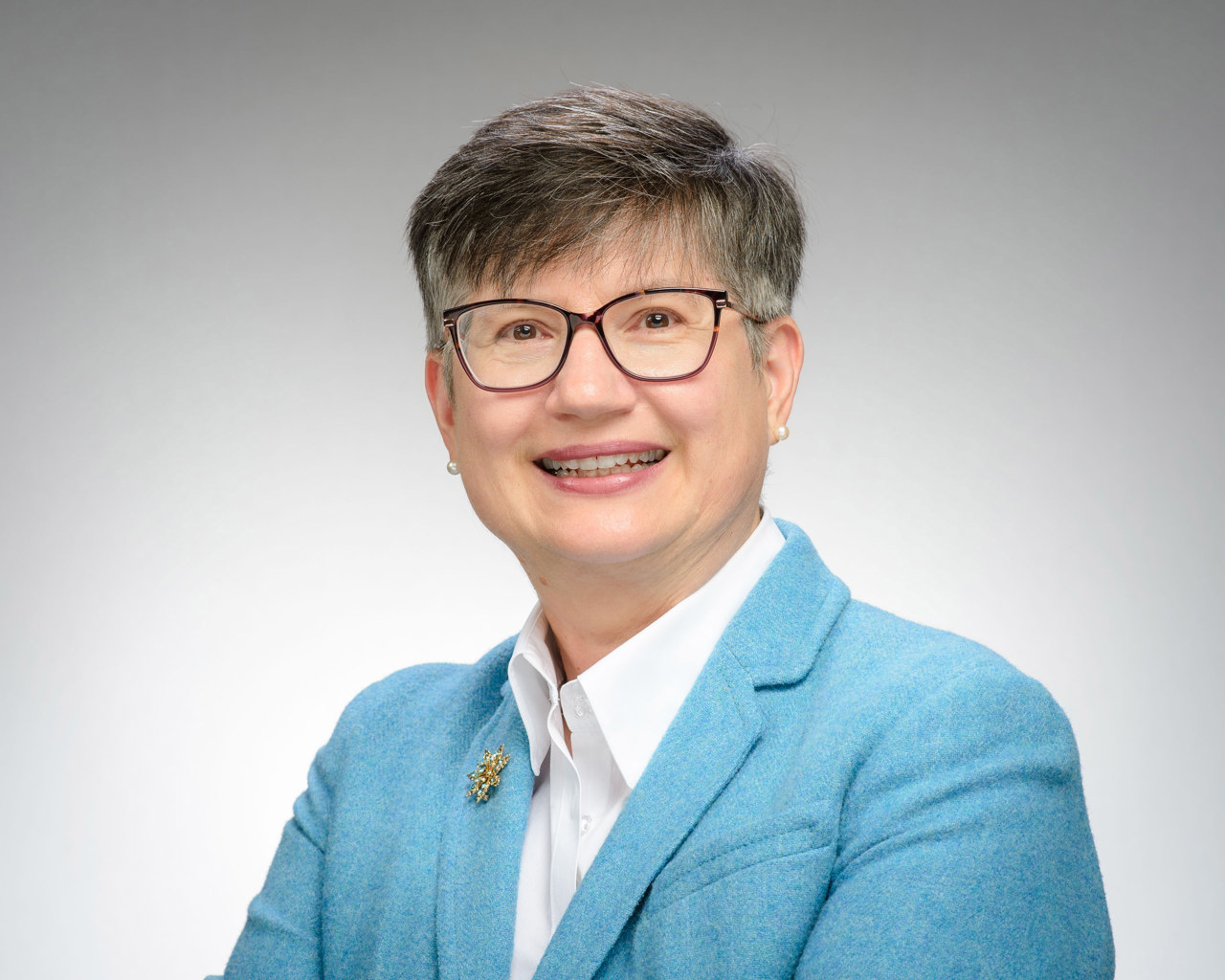
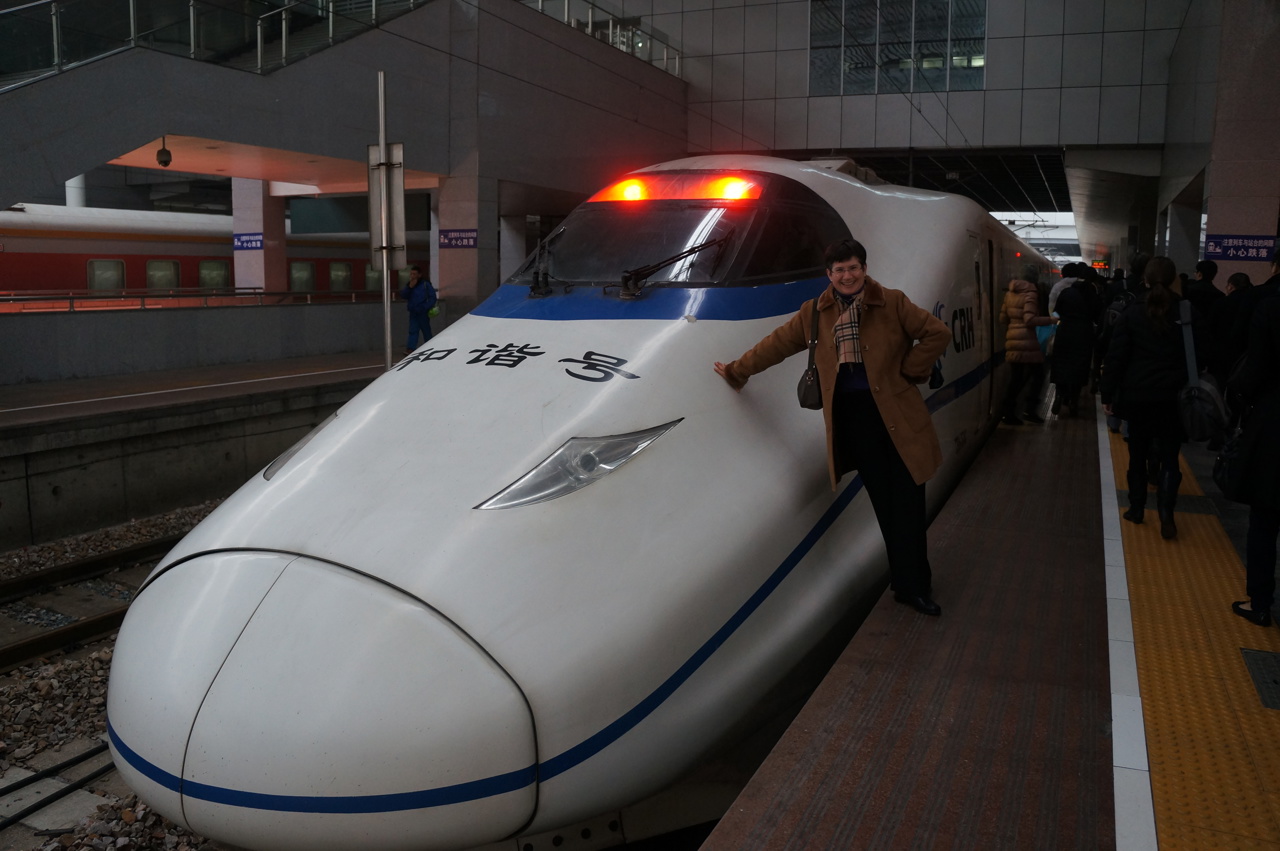
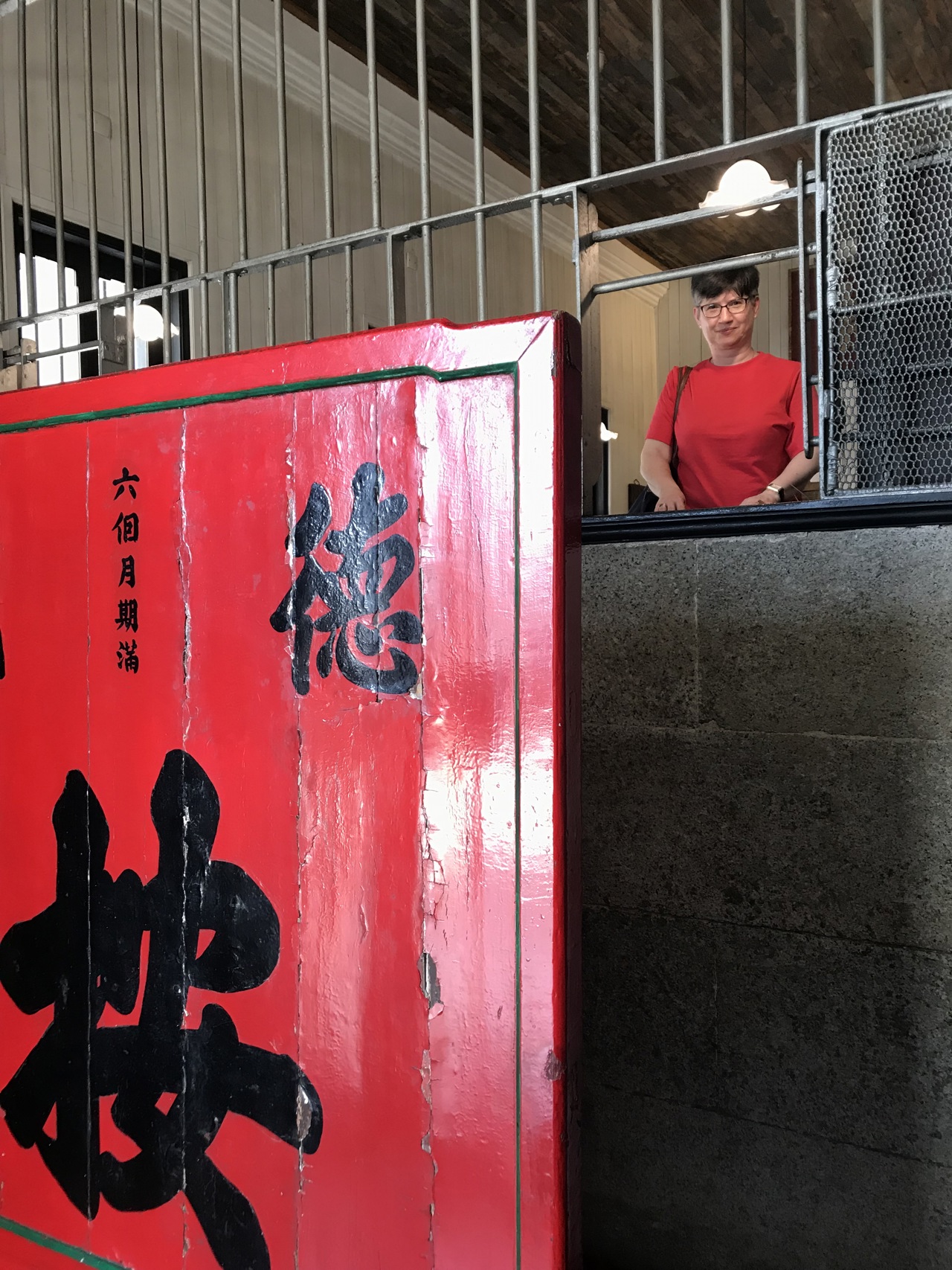
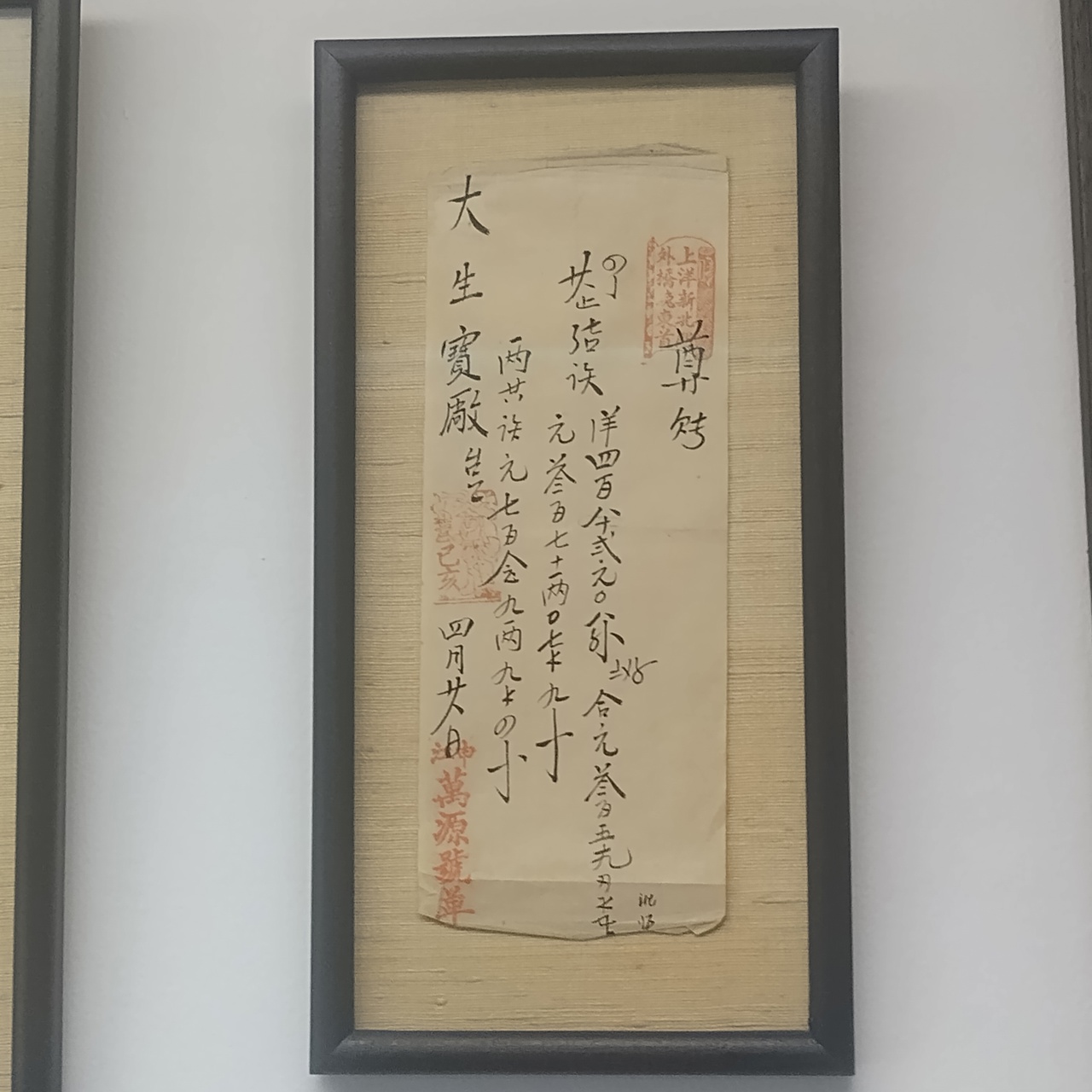
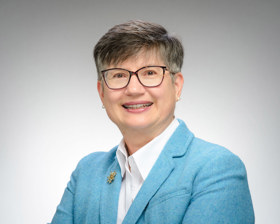
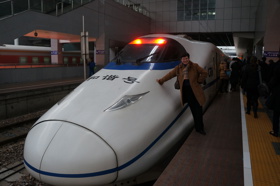
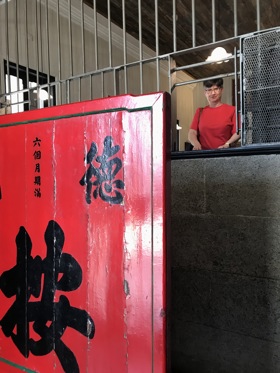
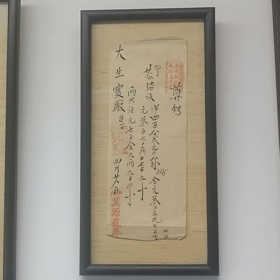
‘I loved reading about explorers’
Although I was born in Switzerland, we moved to West Berlin when I was just one year old, and then five years later we moved again to Koblenz on the Rhein, and then soon after that to Bad Homburg north of Frankfurt. My parents were very curious, open people who embraced new experiences and life in different cultural environments which led them to develop wide and diverse social and cultural networks. My mother, a bookseller specializing in antiquarian books, and father, an engineer, had an incredible enthusiasm for culture. Not surprisingly, music, opera, theatre, exhibitions, and travel were a big part of our family life. In many ways, I was treated like an adult with independent, serious interests from a very early age on. I still remember how grown-up I felt when my mother, a life-long member of the Goethe Society in Frankfurt, asked me to come along to lectures or when my parents took me to the opera for the first time. I am definitely very grateful for the privileged start in life they gave me.
I loved school and attended a traditional German Gymnasium where we had Latin as the first language, followed by English and then Greek. I really loved studying languages, the related histories and literatures so that for while I toyed with the idea of going into Classics after graduating. Engaging with Classics also sparked my interest in reading about archaeology and the lives of explorers, leading to Sven Hedin in Central Asia or Alexandra David-Néel, the first European woman to explore Tibet during the 1920s. Reading these exciting books got me interested in Asia, and I knew that one day I wanted to go to China and see these regions and historical places for myself. Well, that is the reason why I decided to study Sinology at university.
On applying for the Rhodes Scholarship
The University of Bonn had a long intellectual tradition in East and Central Asian studies, and the city, being Germany’s capital at the time, offered a wealth of cultural institutions and events. The Sinology department was housed in the old castle above the Rhine, and you could hear the ships’ horns in the library. I had great teachers, but learning Chinese was much more difficult than it is now and took a long time. I started university in 1984 when China was only slowly opening up, and we had outdated textbooks and limited exposure to modern Chinese language. At the time one could study in China only via official government exchange, so when I won a DAAD scholarship in 1986, I jumped into an exciting adventure.
Spending two years in China between 1986 and 1988 was a formative experience for me. Society and economy were still under tight political control, but living in Shanghai at Fudan University was an amazing opportunity to interact with Chinese students and the community of international classmates from all over the world. After a few months, I wanted to see more of the country and have more informal language exposure, so I began to travel around China on my own. I cannot say enough good things about how well Chinese people treated me and how much I learned from the frequent social and cultural interactions. These experiences taught me much about myself, my strengths and weaknesses, how to be resilient, and how to connect with people from all walks of life.
A year after I went back to Germany to finish my master’s degree, the 1989 Tiananmen events were traumatic to watch from far away. However, I followed China’s rapid economic reforms of the early 1990s in the news and thought, ‘Okay, this turns out to be an amazing historical trajectory, and I want to continue studying this.’ At the time, Sinology taught at German universities had a strong humanistic focus, whereas I was more interested in the study of history from a social science perspective. Oxford, Cambridge and several American universities were places with China scholars whose works I admired. It was sheer coincidence that one day I saw a poster advertising the Rhodes Scholarship, so I went to the university library to read up on it. I thought, ‘Well, it is a long shot, but maybe I can apply for it’ — and that is really how it all started.
‘It felt like an amazing privilege’
Before starting at Oxford in the fall of 1992, I undertook a short trip to check out my college, St Antony’s, and to introduce myself to my future adviser. During our meeting, he kept pulling many historiographical works in Chinese and English from the shelves in his office, each time asking me whether I read them. I felt a bit intimidated, but also excited and knew that I would have some serious work to do. The academic culture and the facilities at Oxford were so different and so much more generous compared to what I had experienced before. At the Institute for Chinese Studies, I appreciated the close contact with our professors, the high expectations they had of their own and their students’ research work, and the close-knit and supportive community of graduate students. Being able to audit courses in economic history at Nuffield College introduced me to a new set of literature and methodologies as well as to another exciting group of graduate students.
Because the contingent of Rhodes Scholars from Europe was relatively small at the time, making friends with Rhodes scholars from other national cohorts besides the Americans was easy and produced lifelong friendships. Looking back now, it was a great privilege to be a Rhodes scholar when Sir Anthony Kenny served as Warden of Rhodes House. I came to admire his deep intellect and kind personality and was impressed that he took a genuine interest in my work even though I was just one of so many Rhodes scholars in residence. At St Antony’s, I really enjoyed engaging with an international community of graduate students and faculty pursuing research in so many different geographies and academic fields. I rowed as well, although, let me put it this way, we were not stars on the river! It was such a privilege to go to lectures and talks by famous academics, writers, and artists, and as an opera lover, I travelled to London, always in pursuit of the cheapest seats at the Royal Opera House. However, I think one of my fondest memories of Oxford is going to the Bodleian Library in the evenings, seeing the outline of the buildings against the night sky, walking up the stairs and finding a desk in such serene surroundings. It felt like an amazing privilege.
‘One of the best parts of what I do is working with and mentoring junior faculty’
The first two years of my DPhil were spent studying historiography and learning important archival research skills preparing me for historical fieldwork in China. In my third year, I paused the Rhodes Scholarship and went to Nantong and Shanghai where I collected the archival material and oral histories that became the core of my thesis. I finished my DPhil at the end of the fifth year and was thrilled to get a job offer from Case Western Reserve University. I had never lived in the United States before, so moving to Cleveland started a new, exciting chapter in my life. I started out as an assistant professor in the History Department and got tenure in 2004. The following year I had an ACLS China fellowship that allowed me to start collecting material for my next book on the history of the railroad in modern China. After my return, I was invited for a year as a visiting associate professor at Harvard Business School which turned into a full-time position. This was the time when China emerged as the fastest growing economy with the largest consumer market in the world. Prior to 2000, business schools offered relatively little teaching and research on Chinese business, but that changed quickly. The move to a professional school was another adventure that introduced me to business history taught in the context of a business school, but also to the case method teaching in the MBA classroom. HBS offered an amazing learning experience in- and outside the classroom, and I especially came to appreciate and respect the deep commitment and dedication of entrepreneurs to their firms and projects.
Ultimately, I made the transition back into a history department because my research work was always anchored in history as an academic discipline, and I did want to give up my identity as a China historian. I moved to the University Notre Dame in 2015 where I had the opportunity to finish my book on the evolution of China’s railroad system from the late 19th century to the beginning of the economic reforms. This book is not only an institutional analysis of railroads as managerial, business, and administrative entities, but it also uses railroads as a lens to explore the historical trajectory of Chinese society, economy and history across the 20th century. Currently I am working on a new project exploring pawnbroking and pawnshops as informal financial institutions in modern China.
One of the best parts of what I do in my role as department chair and administrative leader at Notre Dame is working with and mentoring junior faculty. I try to help colleagues be productive in their research and successfully navigate their career trajectories. I am also very invested in supporting female faculty in their professional academic development. One of my proudest achievements is having supported female colleagues in the successful promotion process to full professor. I am now going into my sixth year as department chair, and after starting out during the pandemic, we now find ourselves again in an emergency situation where academia and especially the humanities are facing serious challenges. My work is not done yet!
‘You can move the needle’
To today’s Rhodes Scholars, I would say that maintaining the authentic self is very important. You should not feel that you must fit a particular image or model of “the” Rhodes Scholar. Love of learning, contributing to society, and leadership can take so many forms. Along the way, you can make a real, positive, and significant impact even in situations one would not characterise as normal leadership opportunities -- but you can move the needle!
